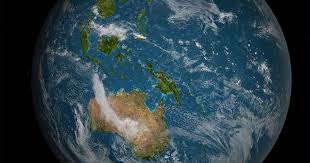
Part of the system that pumps water, heat and nutrients around the globe is at risk. Climate change could slow the Antarctic Circumpolar Current down 20% by 2050.

Over the past three decades, there has been a startling increase in the prevalence of obesity across the U.S., at least doubling in adult men and women since 1990.

Our planet will only remain able to provide even the most basic standard of living for everyone in the future if economic systems and technologies are dramatically transformed and critical resources are more fairly used, managed and shared.

The number of new cancer cases will rise to more than 35 million in 2050 – 77 percent higher than the figure in 2022, the World Health Organization reported recently.

Nearly five times more people will likely die due to extreme heat in the coming decades, an international team of experts said Wednesday, warning that without action on climate change the "health of humanity is at grave risk".

Solar power (also known as photovoltaics, or PV) is likely to become the dominant power source worldwide by 2050, according to a new study.

How does a city choked with traffic and packed full of carbon-emitting processes and structures reach a goal of net-zero carbon? And exactly how different would the urban environment look if it were net-zero?

Japanese Prime Minister promised that the government will be aiming to cut greenhouse gas emissions to zero over the next 30 years. He said that it is possible to achieve carbon-neutrality without jeopardizing the economy.

A new analysis of numerous climate models predicts the Arctic Ocean will become ice-free in the summer before the mid-point of this century – a startling forecast that persists even if we cut down atmospheric CO2 emissions.

Microsoft CEO announced recently that not only does the company plan to be carbon negative by 2030, but if it succeeds, the move will effectively cancel out its lifetime CO2 emissions by 2050.

The country will pursue 100% renewable energy by 2035, overhaul public transportation, invest in electric cars, plant 1 trillion trees, and stop permitting oil and gas exploration.

A new report shows low carbon measures in cities could reduce urban emissions by nearly 90 percent and support 87 million jobs worldwide by 2030.

Luxembourg, Austria, Ireland, Lithuanian, Spain and Finland have joined in a call to a 100% renewable energy system, which includes heating, cooling, transport and other drains on power.

Bringing together mega-economies, green city infrastructure, and e-services that decimate inefficiency, future transportation and web-based urban services will shape how and where we live, on unthinkable dimensions.

The research has found that even if the world were to cut emissions in line with the Paris agreement, winter temperatures in the Arctic would rise above 3.5 degrees Celsius by 2050 and 5.9 degrees Celsius by 2080.